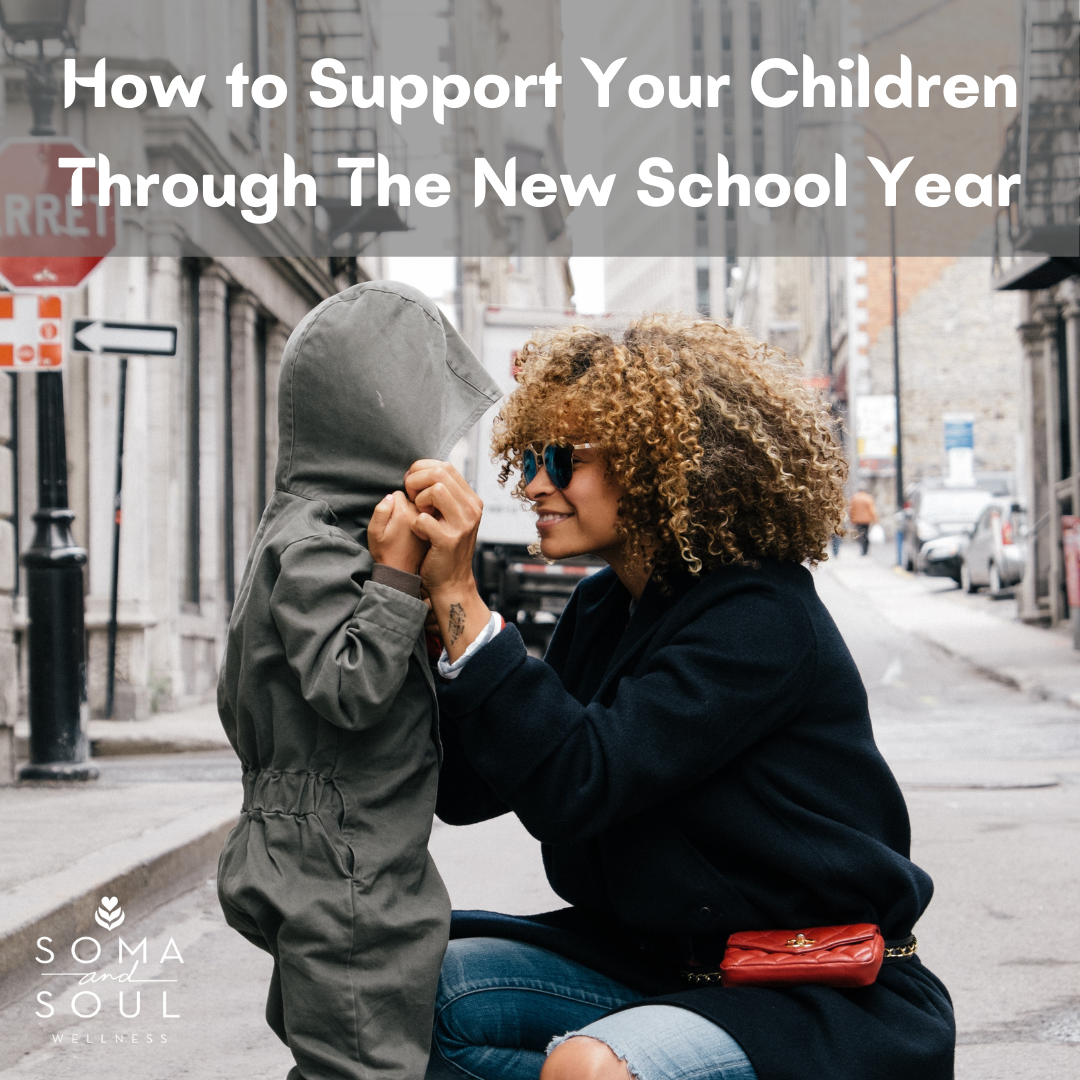Let’s face it: things will be different this new school year. There are more questions around health and
safety for our children and more uncertainty about doing the right thing. Should you send your
child(ren) to school? If you don’t, how will you manage child care and education? How should you
respond to your child’s anxieties about COVID? There is not a single right answer for every child or
every family. Figuring out what’s best for you and your family will be primary goal. Here are a couple of
suggestions you can consider when thinking about how to best support your children.
Talk to them about how they feel about going back to school. No judgement or corrections. Just listen,
convey understanding and validate feelings – positive or negative. Just feeling heard and knowing that
their parent(s) understand how they are feeling is powerful in itself. Resist the urge to fix problems or
give solutions, unless asked. You can clarify if your child would like help in certain areas that he/she has
identified as stressful or challenging and take your child’s lead. They key is to be emotionally available
to your child, so they feel that they can come to you and ask for help when they need it. This also gives
your child the opportunity to try to problem solve on their own and build resiliency and a sense of
empowerment.
For younger children, it might be helpful to outline a daily schedule or routine. This helps create
structure and predictability in their day. This can be especially helpful for children who are disorganized,
forgetful or anxious. A daily schedule can also help develop time management skills. The daily schedule
can include wake up times, school start times, after school activities such as homework, leisurely
activities after home work is done, and set bedtimes. This not only keeps children on track but parents
as well. Especially with the uncertainty of in-class or online learning, reduced school hours or some
other combination, setting a predictable structure for the day, in the a time when regular school
routines have been disrupted, can help children manage anxieties about what to expect. When
establishing a daily routine, it helps if it is not too full or too rigid. Leave time for flexibility and free
time. For example, dinner time doesn’t have to happen at 6:00 pm on the dot (it rarely does anyway!).
Your child doesn’t need to be engaging in activities every minute of the day. Involve your child in
establishing your routine and ask them for suggestions of activities. The more your child is involved in
deciding the activity, the more likely they are to engage in it. You can make it more general such as
“outside time” or “creative activity.” Know what to expect in a time of change and uncertainty helps
provide a sense of security for the child. They are not left wondering what will happen next, pressure of
coming up with things on their own, of anxious about not knowing what to do.
As the school year approaches with uncertainty about how things will be, spending some time to
prepare your kids for how this school year will be can go a long way. You can learn about any worries or
anxieties they might have and be aware of any signs or signals that your child might not be doing so
well. You can also learn about what they’re looking forward to or excited about. Although there has
been a lot of uncertainty and change in the world we live in, it is important recognize that it isn’t all bad.
It can be easy to get stuck in seeing all the negative around us, which isn’t always helpful. Many children
and parents may be experiencing a higher level of anxiety about this school year, wondering how to
manage the changes. Take a moment and a deep breath (or two). Ground yourself and remember that
you got this. Some way, some how, you’ve gotten this far. You’ve managed to move forward during
this pandemic and make the necessary adjustments in your life. Give yourself some credit and let’s
continue to move forward into the new school year.




